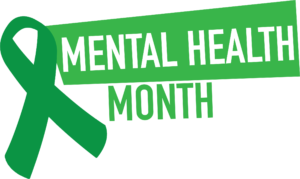During this time when the world is experiencing a crisis, you can be the source of comfort your children need.
Everyone reacts to crisis and stress differently. Below are some reactions to watch for that may indicate your children need help through a crisis.
Reactions to Watch For:
- Regressing to outgrown behaviors
- Acting our or exhibiting more irritability
- Withdrawing or demanding more attention than usual
- Crying more than usual and at the slightest provocation
- Experiencing unexplainable aches and pains
- Eathing unhealthily
- Showing a change in sleep patterns
Whether your children are reacting to the current crisis or another crisis in their world, the following tips can help you better support your children.
Tips to Help:
- Talk with your children about the crisis. Allow them to ask questions and then answer them simply and in a way they can understand.
- Talk with your children about their feelings. Are they feeling stressed? Worried? Listen to what they say, without judging.
- Tell your children that their safety is important to you. Even though they safe, let them know it’s ok for them to feel scared or worried.
- Take care of yourself. In order to help your children, you need to help yourself. Practice good health habits and exhibit healthy ways to handle stressful situations. Your children can look to you to know how to cope with crises.
- Offer more attention to your children, such as giving back rubs, cooking comfort food or your children’s favorite food, and giving more hugs.
- Spend more time together as a family.
Keeping Mental Health Intact During a Crisis
During a crisis, it’s important to take steps to stay physically healthy. But maintaining good mental health is also important.
Tips for Maintaining Good Mental Health:
- Limit media. Reading all articles related to the crisis will only cause more stress. Try setting a specific time, such as once every other day, to read updates, and do so with the idea that it will help you know how to prepare, not tell you how much to panic.
- Do some good. As you are able, help those around you.
- As much as you are able, stick to your normal routine. Or, create a new routine and adapt to following it.
- Reduce stress by having a preparedness plan.
- Connect with others through calls, video calls, etc.
- Practice good health habits such as exercising, meditating, sleeping enough, and eating well.
- Do things you enjoy or use this time to explore other interests.
*The information in this blog is a starting place and might not be effective for every child or every situation. Individual counseling can be helpful in adapting strategies to meet individual needs.

This blog was written by Hope Squad. Hope Squad student members are trained to be aware of their peers and watch for warning signs. They learn to show empathy to their peers, listen without judgment, and reduce stigma regarding help-seeking and mental illness. Hope Squads are now in over 1,200 schools across 35 states and Canada. During the seventeen years since Timpview High School started a Hope Squad, the school has not lost a student to suicide. And as Hope Squad grows, we will continue to spread hope and save more lives. Learn more by visiting https://hopesquad.com/.



